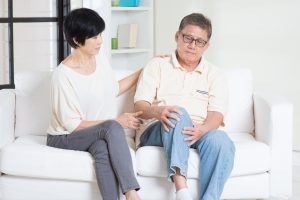
A common symptom seen in older adults, knee buckling – or the knee “giving away” – can increase a person’s risk of falls and injury. Exercise and other treatment interventions for knee instability and knee buckling can help improve older adults’ lifestyle and health. Researchers from the University of California, San Francisco, studied 1,842 participants, who either had knee osteoarthritis or were at high risk for this condition.
At the end of the five-year period, 16.8 percent reported knee buckling, and by the end of seven years, 14.1 percent had recurrent falls.
Lead investigator Michael Nevitt said, “Falls, injury from falls, and poor balance confidence are extremely common and debilitating problems in older people. The present study has demonstrated for the first time that knee instability and knee buckling are important causes of these problems in the very large segment of the older population suffering from knee pain. Fortunately, it may be possible to treat knee instability and prevent knee buckling with targeted exercises. Joint replacement surgery can also improve knee stability.”
Dr. Nevitt suggests that practitioners should inquire about their patients knee instability and falls, and create treatment plans to improve instability either through assistive devices or physical therapy in order to reduce the risk of future falls.
Sources:
http://onlinelibrary.wiley.com/doi/10.1002/acr.22811/abstract